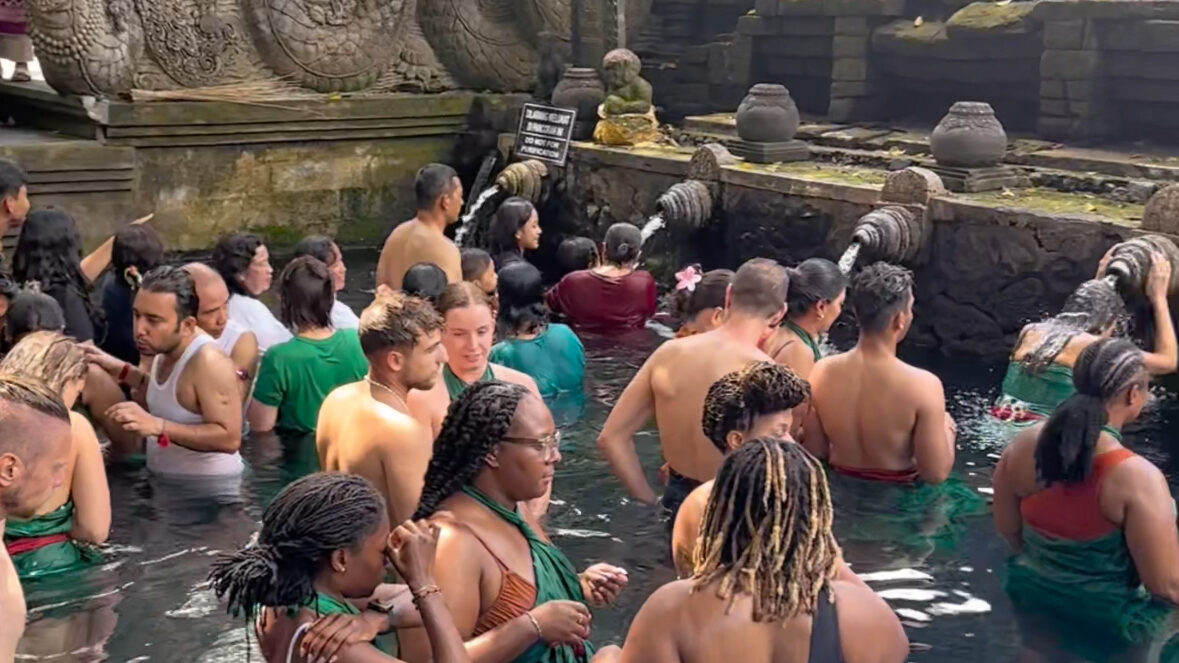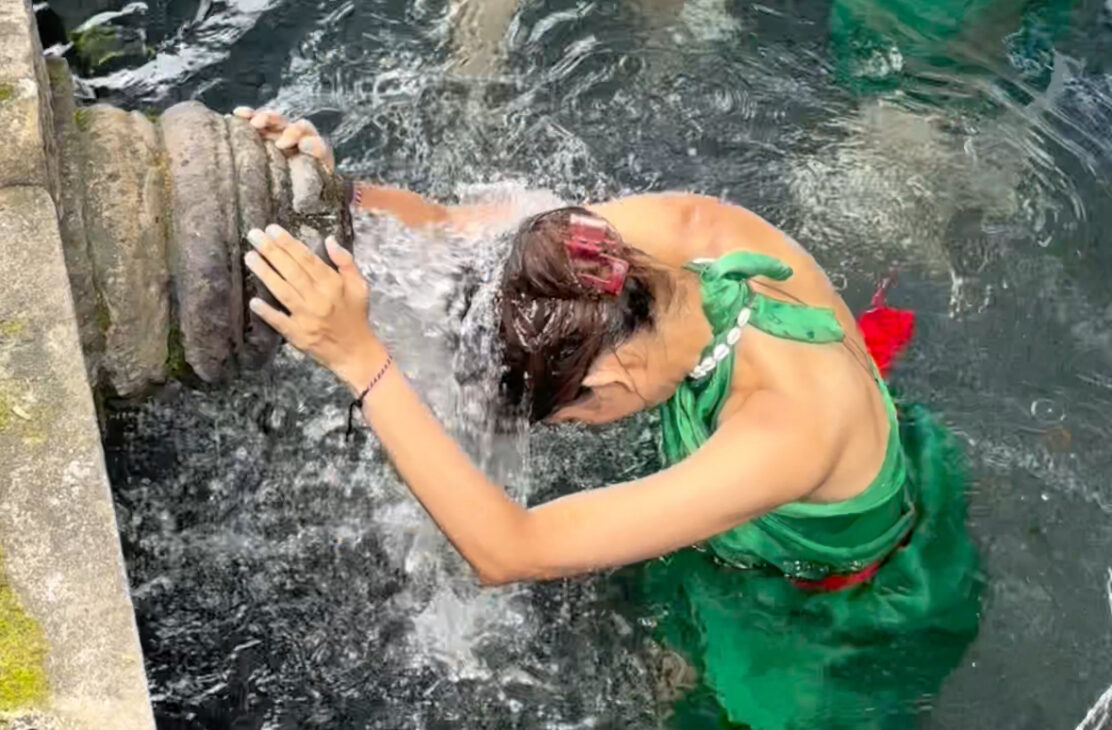Experiencing the Sacred Rituals in Bali: Tirta Empul Temple

Bali, with its spiritual ambiance, lush greenery, and profound culture, has always intrigued me. On my recent trip, I was most excited about visiting the famous Tirta Empul Temple, known for its sacred waters and the renowned purification ritual called Melukat. Located in the heart of Bali, this temple is more than just a historical site; it’s a place of spiritual healing and cultural richness.
A Sacred Encounter:
As I entered the gates of Tirta Empul, I felt a sense of calm immediately wash over me. The temple, built in 962 AD during the Warmadewa dynasty, still retains its aura of ancient mysticism. Surrounded by lush greenery and set against the backdrop of Mount Agung, the natural beauty blended perfectly with the intricate carvings and stone sculptures of the temple that are a central part of the Melukat ritual.
I had read that Tirta Empul is not only a temple but also a pilgrimage site for the Balinese Hindus who come here to cleanse themselves in the sacred waters. I felt both a sense of excitement and reverence as I decided to participate in the traditional Melukat ritual myself.

The Melukat Ritual: A Spiritual Cleansing
Melukat, a ritual that involves bathing in holy spring water, is believed to cleanse the body, mind, and spirit of impurities. After renting a sarong (a must for both men and women to cover up appropriately), I headed towards the purification pools.
The pool was divided into several sections, each with fountains spewing cool, clear water directly from the springs beneath the temple. Before I began, I followed the instructions of my guide and made an offering. These offerings, made of flowers, incense, and leaves, were placed on an altar as a symbol of respect to the deities.
Standing in the line of devotees, I moved from fountain to fountain, dipping my head and letting the water run over me, feeling its coolness as I said a quiet prayer. Each spout represents a different purpose—some to cleanse bad dreams, others to purify the soul. The process was slow, deliberate, and deeply introspective. The waters seemed to carry away not only fatigue but also the mental clutter I had been carrying for months.

It was advised to skip two fountains, reserved for purification after death, as they hold a different significance in Balinese culture. I respected this and simply took a moment to observe those fountains from a distance.
Do’s and Don’ts at Tirta Empul
During my visit, I made sure to follow some important do’s and don’ts to respect the sacredness of the place:
Do’s:
- Wear a Sarong: A sarong and a sash must be worn at all times, whether you are bathing or simply walking around. These can be rented or borrowed at the temple entrance.
- Respect Rituals and Offerings: The Balinese take their religious rituals seriously, so it’s essential to remain respectful. When passing by offerings placed on the ground, make sure not to step on them.
- Follow the Flow: In the purification pools, start at the first fountain and move in sequence, skipping the two fountains meant for funeral rites.
- Take Guidance from Locals or Guides: It was extremely helpful to have a guide who explained the significance of each step of the ritual and helped me understand the proper conduct.
Don’ts:
- Pointing Your Feet Towards Shrines: Whether sitting or standing, avoid pointing your feet directly towards any shrines or statues of deities.
- Loud Behavior: The atmosphere is sacred and meditative, so maintaining a calm and quiet demeanor is important.
- Skipping the Offering Process: It’s crucial to take part in the offering ritual before entering the purification pools—it shows respect for the sacredness of the water and the spiritual process.
Practical Details: Timing, Costs, and Tips
- Timings: Tirta Empul is open daily from 9 AM to 5 PM, but I recommend getting there early in the morning. The early hours are less crowded, and the atmosphere feels even more serene as the day begins.
- Ticket Costs: The entry ticket is 50,000 IDR for adults (around 3 USD) and 25,000 IDR for children. Additionally, there’s a small fee for renting a sarong, usually about 10,000 IDR.
- Getting There: The temple is located in the Tampaksiring area, approximately 30 minutes from Ubud by car. I hired a local driver for the day, which made visiting other nearby attractions easier.
- Things to Bring: A change of clothes, as you will be getting completely wet during the purification ritual, and a waterproof bag for valuables. Though lockers are available, it’s best to keep your belongings safe.
A Memorable Experience
My visit to Tirta Empul was more than just a tourist activity—it was a journey into the heart of Balinese spirituality and culture. Participating in the Melukat ritual allowed me to experience firsthand the island’s deeply rooted customs and offered me a chance for reflection and a kind of inner rejuvenation.
The temple’s history, coupled with its sacred water, truly makes it a place where you can not only witness but also take part in the living traditions of Bali.If you ever visit Bali, don’t miss the chance to visit Tirta Empul—it might just cleanse your soul as much as it did mine.










